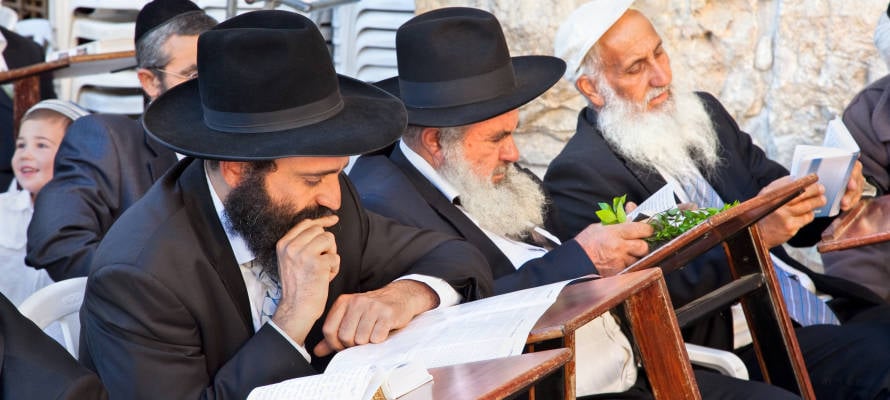A closer look at the Jewish judicial system.

Rabbi Aviran Halevy, a judge in Jewish religious matters. (Yaakov Naumi/Flash90)
The phrase Beit Din refers to the Jewish courts of law that render rulings and judgments in accordance with Torah and Talmudic law. According to Jewish law, when two Jews have a dispute they are required to have it resolved according to Jewish law, not secular law. Jewish law covers ALL aspects of life including civil and monetary disputes, not merely ritual law.
The rulings of a Beit Din have varying degrees of authority in Israel and the Diaspora. In Israel, the rulings of a Beit Din are generally accepted and enforceable for matters relating to family law. In the Diaspora, the Beit Din has no authority and its rulings cannot be inherently enforced. As such, every Beit Din makes the litigants sign a binding arbitration agreement before the Beit Din will hear a case. This is in order to ensure that (a) the losing party will not be able to simply walk over to secular court, and (b) so that the Beit Din’s rulings can be enforced by the secular authorities if need be.
The Torah requires every Jewish community to establish Jewish courts of law, as it says “Establish judges and officers in your gates.” (Deuteronomy 16:18) There are other sources in the Torah for the requirement to set up Jewish courts, as well.
In ancient times, there were three types of courts:
– The Sanhedrin, which was the grand central court on the Temple Mount in Jerusalem. This court consisted of 71 judges.
– All main cities in Israel had a court of 23 judges.
– Smaller courts of 3 judges.

Rabbi Ari Enkin, Rabbinic Director, United with Israel
To be a member of these courts, one had to be ordained in the classical manner: a special ceremony whereupon one’s teacher would lay his hands on one’s head, generally known as “semicha.” To that end, there was an unbroken chain from teacher to student going all the way back to Moses who ordained Joshua. Since the destruction of the Temple in 70 CE, the transmission of semicha was lost and discontinued. So too, attempts in the 16th century to reinstate the semicha were essentially unsuccessful. As such, today’s “rabbinical ordination” is not the true, or at least not the original, ordination that existed in ancient times. Rather, rabbinical ordination today refers to a certification that the bearer has passed tests on Jewish law
Today we only have the Beit Din of three rabbis, though it is permissible for a single rabbi to hear a civil case if both litigants agree. At least one of the three rabbis on a Beit Din must be a known expert in civil and monetary law.
There are three or four titles that are used for the rabbis and offices of a Beit Din.
– Av Beit Din. This is the most senior rabbi, who is usually a highly respected rabbi and authority on Jewish law.
– Rosh Beit Din is equivalent to a chief justice.
– Dayan is a member judge.
– Chaver Beit Din is a member judge and/or advisor to the court. Often a chaver will be a judge with training in secular law or science who can share his experience and perspectives with the court.
A Beit Din is required or preferred for the following matters:
– Divorce
– Kosher certification of restaurants and food manufacturers
– Examination and certification of “shochets” – ritual slaughterers
– Conversion
– Determination of “personal status” (i.e. whether someone is a Jew according to Halacha)
By: Rabbi Ari Enkin, Rabbinic Director, United with Israel
To read more of Rabbi Enkin’s insights, click on the links below.
https://unitedwithisrael.org/judaism-demons-does-the-torah-address-the-occult/
https://unitedwithisrael.org/living-torah-the-youth-are-our-future/
https://unitedwithisrael.org/living-torah-we-all-need-our-ear-pierced-sometimes/
https://unitedwithisrael.org/living-torah-youve-just-gotta-listen/
Do You Love Israel? Make a Donation - Show Your Support!
Donate to vital charities that help protect Israeli citizens and inspire millions around the world to support Israel too!
Now more than ever, Israel needs your help to fight and win the war -- including on the battlefield of public opinion.
Antisemitism, anti-Israel bias and boycotts are out of control. Israel's enemies are inciting terror and violence against innocent Israelis and Jews around the world. Help us fight back!




